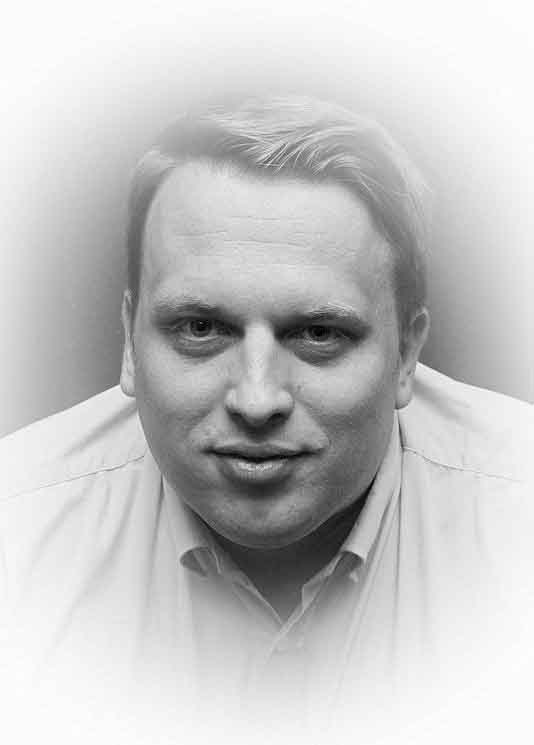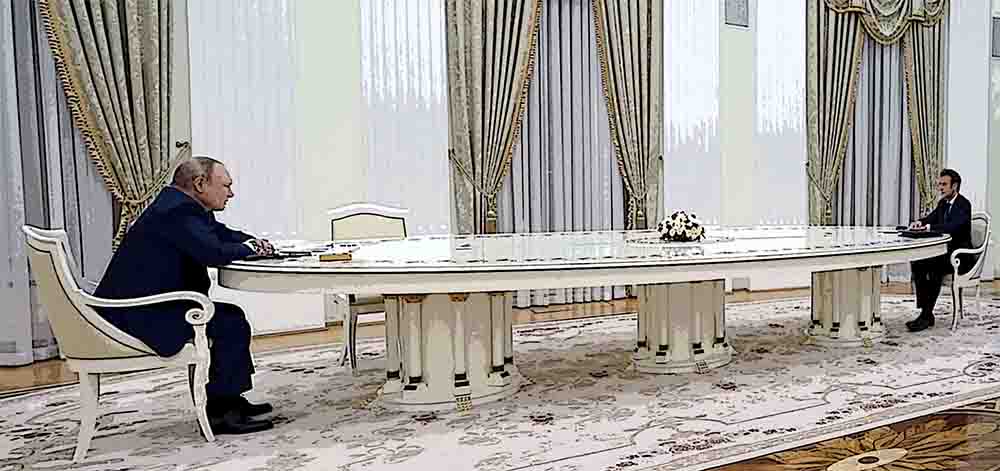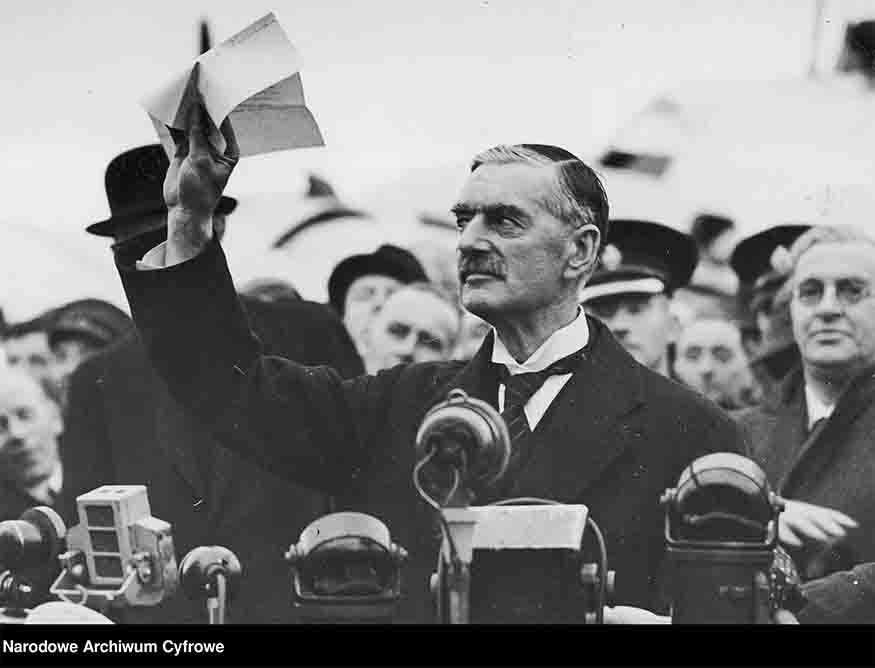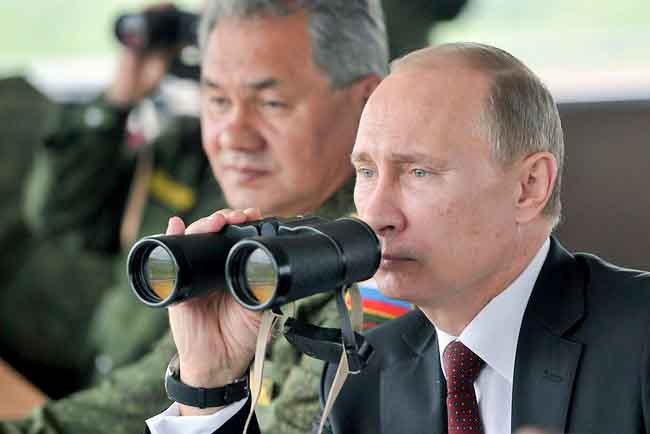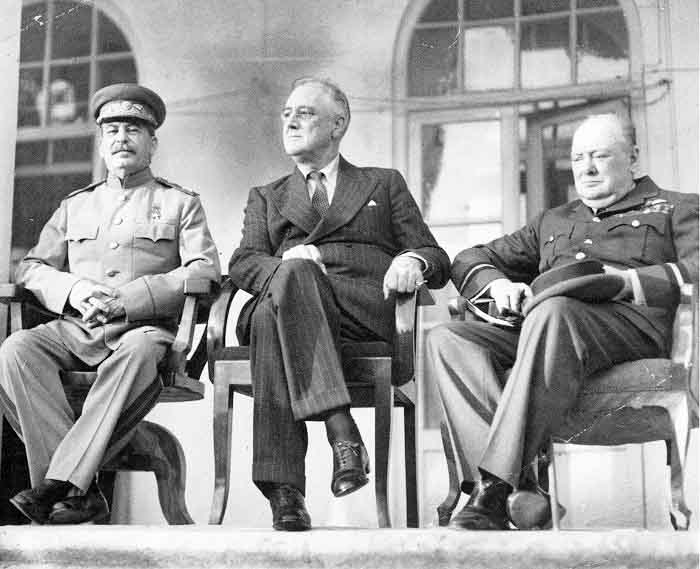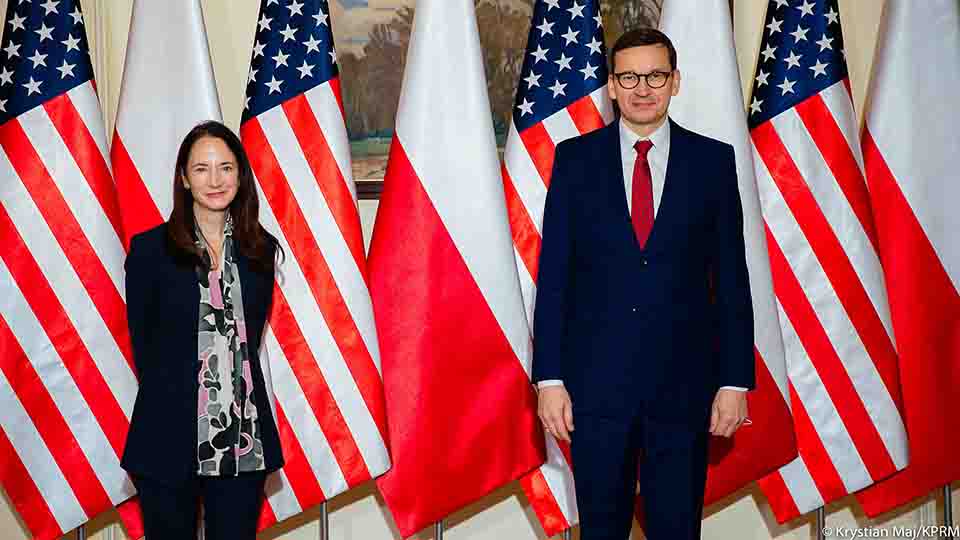Everyone interested in the work of editor Leszek Szumowski is invited to meetings with the author, which will take place in several Polish diaspora centers in the USA and Canada.
"Hey, Pole, where are you going?" an Ukrainian soldier shines his flashlight in my face and looks at me questioningly.
A dozen or so minutes ago I left the border crossing in Jagodina and drove straight towards the capital. The bumpy road full of holes leads through forests and fields, and traffic seizes at night. For a lone driver, especially after dark, this can feel like a ghost town. This situation has one advantage for him though: he can step on the gas pedal and drive faster. But it also has a downside: in the event of an accident or damage to the car, he is on his own.
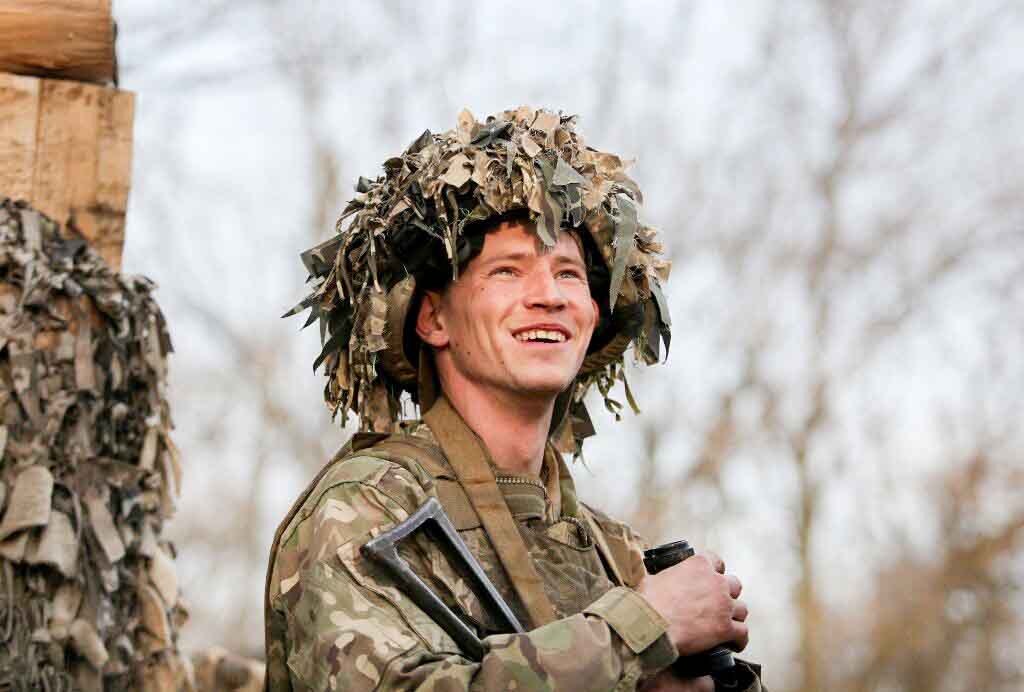
Ukrainian soldiers protect the motherland, Apr. 23, 2021 (Source: KyivPost)
A dozen or so kilometers beyond the Polish-Ukrainian border, I notice a military truck filled with soldiers at the roadside. It is standing weird, crooked. My guess is, it has crashed. Has the war just broken out? For over two hours of waiting at the border crossing, I did not hear any Polish news services. Was it at this time that what everyone feared the most had become a reality?
One of the soldiers waves a flashlight at me and points to the side of the road. I stop and roll down the window. A young military man approaches me, the emblems indicate that he is not very high in rank. He is nice but serious. He asks me about the purpose of the trip.
"To Kiev," I answer, "For business."
Instinctively, I reach for the documents, but he doesn't care. He cares about my car and shines a flashlight inside. He sees nothing suspicious. Volvo is empty.
"If to Kiev." he says to me suddenly, "then take four heroes."
Without waiting for my answer, he beckons his colleagues. A few seconds later, four soldiers approach my car. They each have a uniform-colored backpack, a pistol on their belt and one or more magazines. Additionally, in the hands of a machine gun. One opens the trunk of a Volvo and puts his backpack inside, then gets into the backseat. Others do the same. The highest rank sits next to me. He is maybe 18 or 19 years old.
"Dobre, jedi, jedi!" (OK, go, go!) he says to me in Ukrainian, signaling that we can go.
I am aware that no one asked me for permission to transport these soldiers in my car. But I am also aware that I am alone, among fields and forests, on an empty road, and around dozens of armed soldiers. It's hard for me to argue. I adopt a conciliatory tone. I salute the one who stopped me and press the gas pedal. Volvo moves forward.
"I hope the police won't catch me for transporting guns and ammunition," I start to joke with them.
"There will be nothing, take us to Kiev" says the one sitting next to me.
He doesn't like my accent, and neither the language. Polish and Ukrainian are considered to be similar, but may the first prize go to someone who will understand the speech of our neighbors without any preparation. I speak Russian fluently, but they don't like the language. Anyone who uses it can be a spy.
We manage to establish a conversation. With every kilometer, my fears dissipate and the conversation becomes more and more friendly. Of course, I am careful about every word I say. Four soldiers are friendly to me. I tell them that we, Poles, have also had a problem with the Russians for a thousand years.
Mykola — the one on my right — is no more than 19 years old. He graduated from high school, worked as a car mechanic, then several days earlier, he was given a "war ticket", i.e. a mobilization card. There are tens of thousands like him. The threat of Russian aggression made these young boys change their lives to war-ready. Everyone became a soldier overnight.
"Putin is threatening us, it is my duty to fight for the homeland," he says proudly and his subordinates-colleagues nod in agreement.
You can see in their faces that they are not joking. Like everyone in Ukraine, they blame the president of Russia for all the evil and misfortune.
"We are a free nation, we do not want to be part of Russia, Putin will not swallow us" they are solemn in their announcements.
The car passes more villages, three of them finally start to sleep, only Mykola is still talkative and keeps trying to convince me for another two hundred kilometers that Putin will not be able to cope with them.
I praise their bravery and fighting spirit. There are four of them, they have weapons and ammunition, I am alone, unarmed and all around us it is silent and dark. I do not want to alienate them, although I have exactly the opposite opinion: the difference in the military and economic potential of both countries is so huge, that the war will last maybe two or three days. Ukraine looks westward with hope, seeing NATO as its only salvation. But the US President Joe Biden gives the impression that he has reached an agreement with the Kremlin's steward and the future of Ukraine is a doomed one. America needs Putin as an ally in the rivalry with China, Ukraine is just a pawn in the game for his support.
We are approaching Kiev. In the morning, traffic begins to thicken. In the towns we pass, uniformed soldiers can be seen on every corner. There are also more and more trucks with soldiers. They all go to Kiev, none to the west. A dozen days earlier, the mayor of the capital — Vitaly Klitschko — announced that his city would take up the fight in the event of an attack. There is a military assembly point in the suburbs of Kiev. From there they will be sent to the border. Here, then, I bring my uninvited travel companions. We say our goodbyes and finally I am left alone. I can go to the hotel, the day of business meetings will soon begin for me. I breathe a sigh of relief. I haven't lost my car, money, or life.
Hotel Lybid on the Victory Prospect, where I always stay in Kiev, is like a second home to me. I have been staying in it for years whenever fate drags me to the Ukrainian capital. Always bustling with life, now it is empty.
"Who will come here now, Leszek Andryeyevitz, when the war is in the air," says a security guard I know.
The war can be seen in the faces of soldiers walking along the streets with long guns, in the eyes of policemen controlling drivers and their luggage, in military cars, traveling almost all roads in the country. You can hear it in conversations in shops, pharmacies, railway stations and bus stops. In Ukraine, everyone expects a Russian invasion at any moment. Although no one wants it.
"The war will be for this land and this nation a tragedy greater than the Great Patriotic War," says Oleg Chalabudenko, a law lecturer at the Kiev university and advisor to the vice-chairman of the Verkhovna Rada (The Supreme Council). "Millions of people will die and our cities will be ruined."
For Chalabudenko, like most Ukrainians, there is no doubt that the Russian occupation will mean more than just destruction and chaos.
"When they come, the first thing they do will be murdering our elite," he says, "First of all, those who want an independent Ukraine."
I'm going to Khresatik — the main street in the center of Kiev. I meet armed soldiers and policemen in the underpass, at the crossroads and on the pavement. They react to any suspicious signal. When I answer the phone and speak Russian, an armed officer approaches me immediately. He asks for documents. I show him my passport. He connects with the officer on duty and asks if such a Polish citizen has crossed the border. The case is cleared up quickly thanks to the stamps from the border guards.
"Oh, a Pole, from Poland," says the soldier with a smile, "I was afraid that you are a Russian spy."
Fear of espionage reigns in Kiev as in the Stalinist era. One looks for a spy in every stranger. To mess with these spies, the Ukrainian government introduced a language protection law. All TV and radio stations broadcast only in Ukrainian, newspapers write only in Ukrainian, the theaters show performances only in Ukrainian. The Russian language is to disappear from public space. The only problem is that it is the native language of more than half of the inhabitants. Especially in the eastern part.
Maria Anatolyevna has been selling flowers for 40 years in the underpass between the two threads of Khresatika. She is not afraid of war.
"And what is the war?" she says. "There have been wars here for hundreds of years, no one will kill an ordinary florist. Once the Russians come, they will go."
Ukrainian television in news services mainly talks about two topics: about the corona virus epidemic and about the war. Citizens are tired of this. They don't believe television, they don't believe politicians. But they believe Putin could step in at any moment. Two weeks ago, the mayor of Kiev — Klitschko — ordered the alarm systems to be checked. In the event of an attack, sirens will scream and every adult Kiev citizen will present to defend the city.
So far, the sirens haven't screamed yet. The war has not yet broken out. But they all feel her breath.



